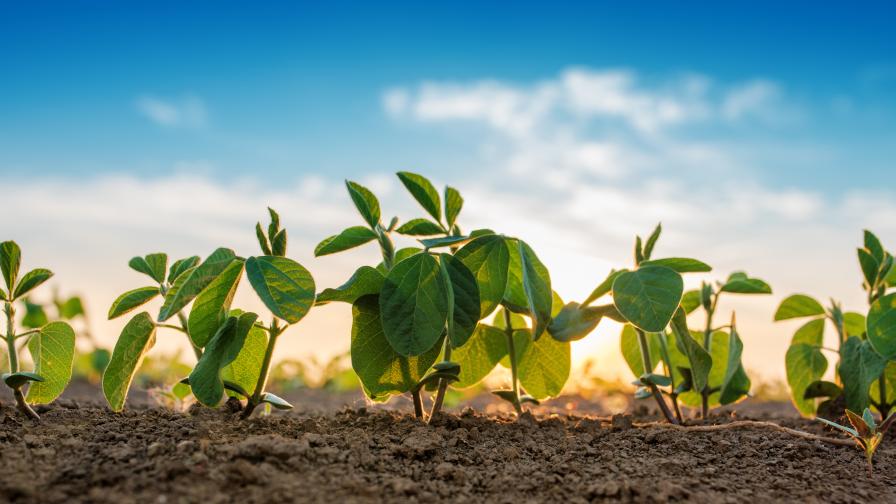Varda to Boost European Soil Health As Part of EU’s €6 Million Investment Into Subsoil Sampling


Varda Joins DeepHorizon Project to Enhance Subsoil Sampling Across Europe

Varda, the agtech data service provider, has announced its participation in the four-year €6 million ‘DeepHorizon’ project, funded by Horizon Europe. The project aims to conduct extensive subsoil sampling across European countries, addressing the issue of subsoil degradation caused by unsustainable land management practices and climate change.
SoilHive Platform and Data Management
Varda, founded by Yara, the global leader for nutrient production, has developed SoilHive, an innovative platform that facilitates access to public and private soil data on a global scale. As part of the DeepHorizon project, Varda will support the consortium in data management and facilitate data sharing and discoverability. This includes extending existing ontologies to include subsoil domains and functions, creating the first European-level subsoil dataset, and enhancing SoilHive to improve the discovery of subsoil data.
The Importance of Subsoils and Sustainable Development Goals
Subsoils play a vital role in ecosystem health, contributing to carbon storage, water retention, nutrient cycling, and overall soil fertility. Understanding and managing subsoils is crucial for sustainable agriculture, climate change mitigation, and maintaining biodiversity. The DeepHorizon project aims to explore the potential of subsoils through data collection, modelling, and stakeholder collaboration, aligning with the Sustainable Development Goals (SDGs) set by the United Nations.
- SDG 2: Zero Hunger – Enhancing soil health and fertility can contribute to food security and sustainable agricultural practices.
- SDG 13: Climate Action – Managing subsoils can help mitigate climate change by storing carbon and improving soil resilience.
- SDG 15: Life on Land – Protecting subsoils supports biodiversity and the preservation of ecosystems.
Simone Sala, Director of Soil and Ecosystem Solutions at Varda, expressed the importance of addressing subsoil degradation and protecting the future of soils.
SoilHive: A Centralized Repository for Soil Data
Varda’s SoilHive serves as a centralized repository where researchers can access a wealth of information on soil, nutrient levels, chemical composition, and more. By sharing insights, data, and research findings, researchers, scientists, and governments can collectively contribute to a more holistic understanding of soil-related issues and work towards innovative solutions.
Collaboration for Positive Change
Varda emphasizes the power of collaboration in the fight against climate change. The company hopes that the DeepHorizon project will act as a catalyst for positive, impactful change across Europe and beyond.
Professor Mathieu Javaux, from the Earth and Life Institute at UCLouvain, highlighted the holistic approach of DeepHorizon in understanding soil functioning at different layers. The project aims to provide stakeholders with new tools to manage subsoil and improve its health.
Varda’s participation in the DeepHorizon project aligns with its mission to facilitate collaboration in the agtech industry and accelerate the transition towards a nature-positive food system through better data discovery and sharing.
SDGs, Targets, and Indicators
-
SDG 15: Life on Land
- Target 15.3: By 2030, combat desertification, restore degraded land and soil, including land affected by desertification, drought, and floods, and strive to achieve a land degradation-neutral world.
- Indicator: The article discusses the critical issue of subsoil degradation caused by unsustainable land management practices and climate change, which aligns with the target of combating desertification and restoring degraded land and soil.
-
SDG 13: Climate Action
- Target 13.1: Strengthen resilience and adaptive capacity to climate-related hazards and natural disasters in all countries.
- Indicator: The article mentions that subsoils play a vital role in climate change mitigation, indicating the importance of understanding and managing subsoils to strengthen resilience and adaptive capacity to climate-related hazards.
-
SDG 2: Zero Hunger
- Target 2.4: By 2030, ensure sustainable food production systems and implement resilient agricultural practices that increase productivity and production, that help maintain ecosystems, that strengthen capacity for adaptation to climate change, extreme weather, drought, flooding, and other disasters, and that progressively improve land and soil quality.
- Indicator: The article highlights the role of subsoils in supporting sustainable agriculture and overall soil fertility, which relates to the target of implementing resilient agricultural practices and improving land and soil quality.
Table: SDGs, Targets, and Indicators
| SDGs | Targets | Indicators |
|---|---|---|
| SDG 15: Life on Land | Target 15.3: By 2030, combat desertification, restore degraded land and soil, including land affected by desertification, drought, and floods, and strive to achieve a land degradation-neutral world. | The article discusses the critical issue of subsoil degradation caused by unsustainable land management practices and climate change, which aligns with the target of combating desertification and restoring degraded land and soil. |
| SDG 13: Climate Action | Target 13.1: Strengthen resilience and adaptive capacity to climate-related hazards and natural disasters in all countries. | The article mentions that subsoils play a vital role in climate change mitigation, indicating the importance of understanding and managing subsoils to strengthen resilience and adaptive capacity to climate-related hazards. |
| SDG 2: Zero Hunger | Target 2.4: By 2030, ensure sustainable food production systems and implement resilient agricultural practices that increase productivity and production, that help maintain ecosystems, that strengthen capacity for adaptation to climate change, extreme weather, drought, flooding, and other disasters, and that progressively improve land and soil quality. | The article highlights the role of subsoils in supporting sustainable agriculture and overall soil fertility, which relates to the target of implementing resilient agricultural practices and improving land and soil quality. |
Source: globalagtechinitiative.com








